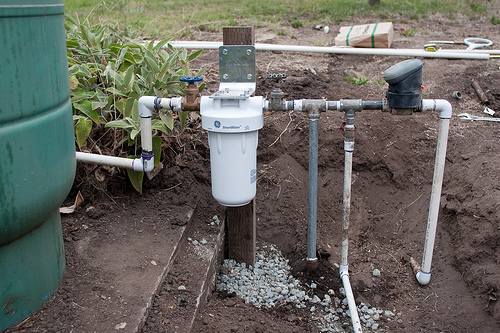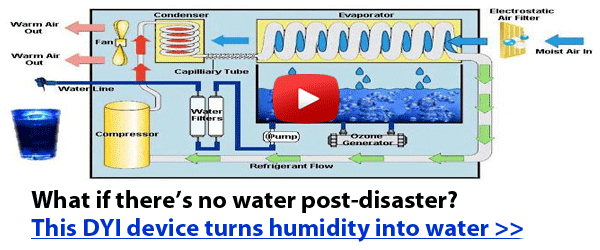Water is important for growing a rich, lush garden. However, water restrictions are a common occurrence these days, which can negatively affect your gardening. Frequent droughts and water restrictions make a problem for all people who want to maintain that lush green garden. Water restrictions should be taken seriously and not as a joke, so it’s important to stick to them. However, it doesn’t mean that you have to ruin your garden.
There are some effective tips and tricks you can use to minimize the water use while keeping your garden lush and healthy. These eco-friendly changes will conserve the water and thus lower your water bill. At the same time, they will allow for enough water for your garden to keep it healthy. Watch this video>>
Here are 5 essential water-saving tips all gardeners should know about:
Perfect Timing
Water your plants at a specific time to maximize the impact of watering while using the least amount of water. The best time to water your plants is early in the morning, before 9 AM or in the evening, after 4 PM. This is when temperatures are lower so water is less likely to evaporate. In other words, the most of it will be used by your plants. Watering early in the morning brings other advantages. For example, it minimized the risk of plant diseases caused by fungi.
When watering, make sure to water at the base of the plant. It makes for a targeted water flow and it delivers water exactly where it’s needed: on your plant’s roots. Another thing you can do is to install an irrigation system. Drip irrigation systems or soaker hoses work the best at reducing the excess water waste. These systems will deliver a targeted flow to the plant roots.

Use Rainwater
Rainwater can be a great source of water for your plants. Use barrels to collect the rainwater during rains. Installing a barrel under a drainpipe is a good way to collect water. It’s best to use a barrel with a faucet so you will always have an easy access to the water. You might think that a barrel will make your garden look ugly but you can always pick an anesthetically pleasing barrel you can easily make part of your garden’s landscape.
Use Mulch and Compost
You can add mulch on top of the soil to help preserving moisture. It also works wonders on preventing the weed growth. If you notice some weeds, pull them out quickly so they won’t spread and they won’t compete with your plants for nourishment. Alternatively, you may use compost to add moisture to your plants. Both compost and mulch will help your plants receive enough moisture so you don’t need to water them too often.
Make Porous Paths
Make sure that your paths, driveways and walkways are porous. You may use permeable hardscapes to help water go through. This way, the water will go beneath instead running off the sides.
Select Plants Carefully
One of the most effective ways to conserve water is to simply choose garden plants that don’t need much water. This way, you won’t have to worry during droughts and you will never waste too much water. When choosing plants to grow in your garden, inform yourself about their watering needs and pick plants accordingly if you know your area is known for water restrictions.
It’s best to grow drought-tolerant plants. This will cut down on the amount of water significantly. Another good way to go is to pick locally native plants because they tend to be well-adapted to the climate conditions present in your area. These plants are adjusted to the usual rainfall level in your region so they will do well in your garden. Tog get the native plants, ask in your local nursery or perform a web research to find the most appropriate plants.
Recommended reading: Water catching: Shelter in place or bug in with fresh water
Photo credit: bartt via photopin cc
Via Sundaygardener
Self-sufficiency and Preparedness solutions recommended for you:
The Lost Ways (The vital self-sufficiency lessons our great grand-fathers left us)
Liberty Generator (How to gain complete energy independence)
Survival System (Learn The 7 Secrets Every Family Must Know To Survive Any Disaster Or Crisis)
Stockpile Challenge (So what’s the recipe for “getting lucky” in the coming catastrophe?)
Food for Freedom (If I want my family to survive, I need my own food reserve)


